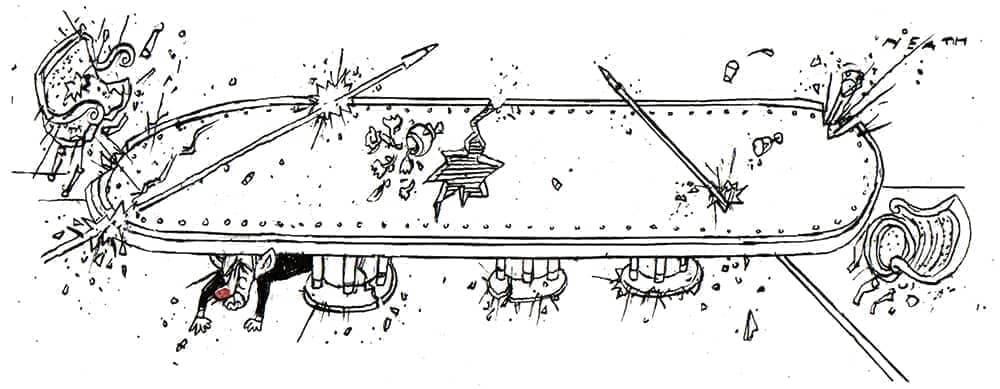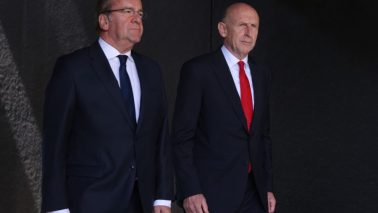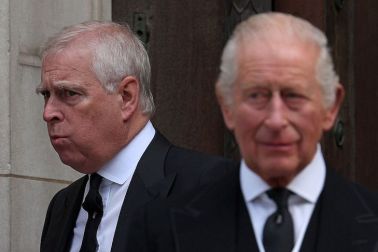How quickly can a G20 economy collapse? That question has come to the fore this week, as the world has united in targeting Russia’s economy while Vladimir Putin continues his illegal invasion into Ukraine.
So far, the rouble is down more than 30 per cent on where it was pre-crisis, at an all-time low against the dollar. Russia’s central bank has upped interest rates to 20 per cent to stop a currency collapse. Its stock market is still closed, and is expected to remain so until mid-next week at the earliest – a record shutdown in the country’s history.
BP has walked away from its 20 per cent stake in Russia’s state-owned Rosneft, while Shell is forgoing its stake in Gazprom, thought to be worth roughly $3 billion. Meanwhile, photos have emerged of massive queues at local transport hubs, as Russians can no longer use Apple Pay to tap their way through the gates: Apple has suspended the service. This has a bigger effect than you might think: Russia’s middle class likes to be cashless and has suddenly found this basic function disabled.
UK ministers are struck by the price differential between Russian oil (Urals crude) and Brent crude. The Russian oil (the country’s economic lifeblood) is $17 a barrel cheaper, but auctions are struggling to find buyers. It’s not just governments boycotting Russia’s supplies, it’s private companies too: going over and above sanctions to avoid being accused of propping up Putin. A fall in the price of Espo, a form of Russian oil popular in Asia, suggests this is happening worldwide and not just in the West.
So we see a double outcome: sanctions, then the extra measures companies are taking to move away from Russia. It’s hard to model, but a bigger effect than anyone in the West had planned for. Right now Russian exports aren’t as badly hit; many old contracts are being honoured. But that will likely change soon.
What does this mean for Russia’s economy in the medium term? India may take its cheap oil. But Oxford Economics produced some of the first forecasts this week, suggesting in a downside scenario that Russia’s GDP could fall 7 per cent below the ‘no-conflict baseline’. The conflict takes its economic toll on everyone, with an estimated hit of 0.6 per cent to global GDP this year, and ‘mild’ spillover into America and Asian countries. J.P. Morgan estimates Russian growth is now 1 per cent, down from 1.7 per cent before Putin’s invasion.
The big unknown in these models, however, is how fast and how high inflation spirals throughout the West. As The Spectator’s economics newsletter discussed last week, it is not at all clear yet that the public is ready for a worsening energy crunch, on top of the shortages and price hikes caused by pandemic lockdowns. Macron braced France for this in his speech on Wednesday. In private, UK ministers are preparing for inflation to go over 10 per cent – quite a hike, even from recent upgrades.
Over in the States this week, Joe Biden’s State of the Union address targeted the cost-of-living problem, but his proposed solutions – more state spending and giveaways – are only likely to make inflation worse. Boris Johnson is still hesitant to level with the public about just how high energy bills could go. Investec reckons the average household heating bill could reach £3,000, a £1,000 rise – and a huge hit for the average family.
As the West struggles with domestic cost-of-living concerns, what might give Putin pause? There’s increasing feeling that his oligarchs need to be better targeted and sanctioned, but as James Forsyth says on Coffee House Shots, the UK is becoming a ‘laggard’ in this area. ‘If you talk to ministers,’ he says, ‘there is a lot of frustration… a feeling that the current system the UK has for sanctioning individuals is dysfunctional. And essentially the problem is that the UK government can’t build a case against these oligarchs that is strong enough to satisfy government lawyers.’
So no doubt there is room to cripple Russia’s economy further – but what’s easy to implement has been done. And now the harder work begins.







Comments